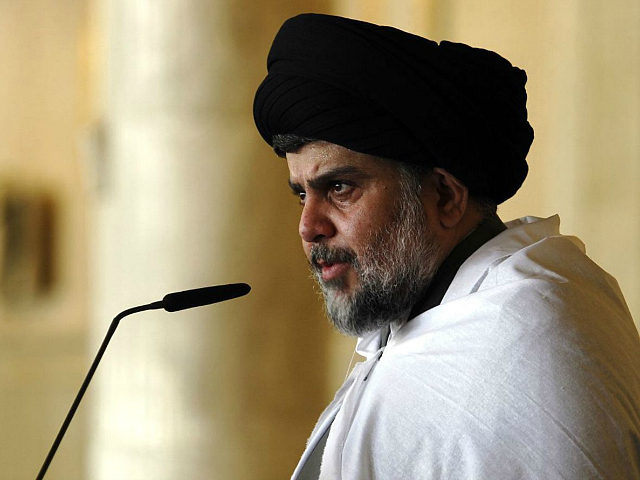Despite years of discord and distance between them, Iran’s ambassador to Baghdad Iraj Masjedi said this week Iraq’s Shiite cleric and political leader Muqtada al-Sadr is a “dear and influential friend and brother” of the Islamic Republic of Iran.
Sadr is both a long-time adversary of the United States and, over the years, has come out in opposition to Iranian influence in Iraq. Ahead of the country’s national election, al-Sadr distanced himself from Iran and positioned himself against the growing influence of Tehran on Iraqi politics under Iraq’s current Prime Minister Haidar al-Abadi.
In an interview with Alalam news network, Masjedi said Iran “welcomes and supports the will of the Iraqi people” and reportedly lauded what he called an “age-old and deep-rooted relations” between Iran and al-Sadr, according to Iran’s state-run Tasnim News Agency.
Al-Sadr created a bloc between his Sayirun (“On the Move”) coalition and several other groups, including the Communist Party of Iraq to be declared the winner of the majority of seats in Parliament.
Since he did not register to run in the election, al-Sadr cannot become Iraq’s next prime minister.
Soon after it was revealed that al-Sadr was working on forming a bloc to secure a majority in the parliamentary elections, Iran’s Islamic Revolutionary Guard Corps-Quds Force General Qassem Soleimani reportedly arrived in Baghdad to meet with the Shi’ite leaders.
Despite Masjedi’s attempts to quell tensions between al-Sadr and Iran, at the end of its piece, Tasnim News Agency referenced a “rare visit to Saudi Arabia” by al-Sadr where he met with Crown Prince Muhammad bin Salman (MBS) in July 2017.
Iran and Saudi Arabia are rivals. The reference to al-Sadr and MBS’s meeting appeared to be a way to craft Tasnim’s readership’s perception of al-Sadr in a negative direction.
Adelle Nazarian is a politics and national security reporter for Breitbart News. Follow her on Facebook and Twitter.

COMMENTS
Please let us know if you're having issues with commenting.